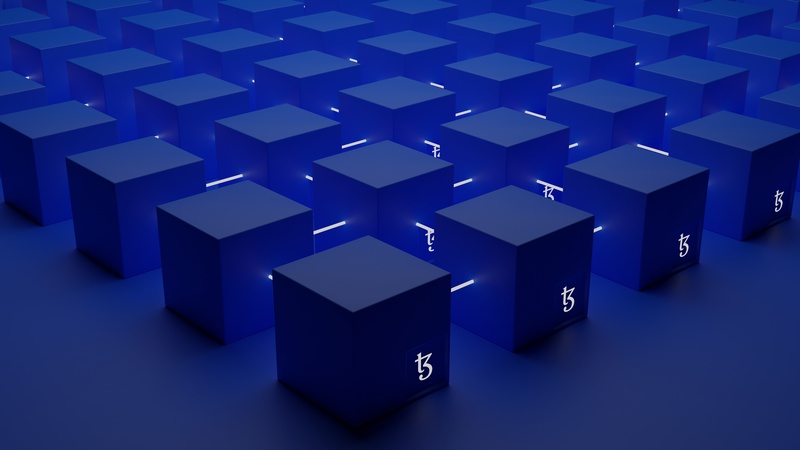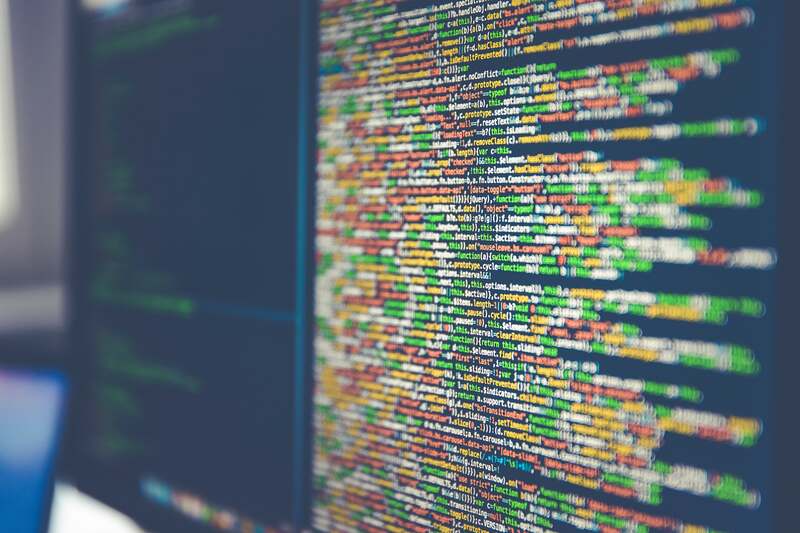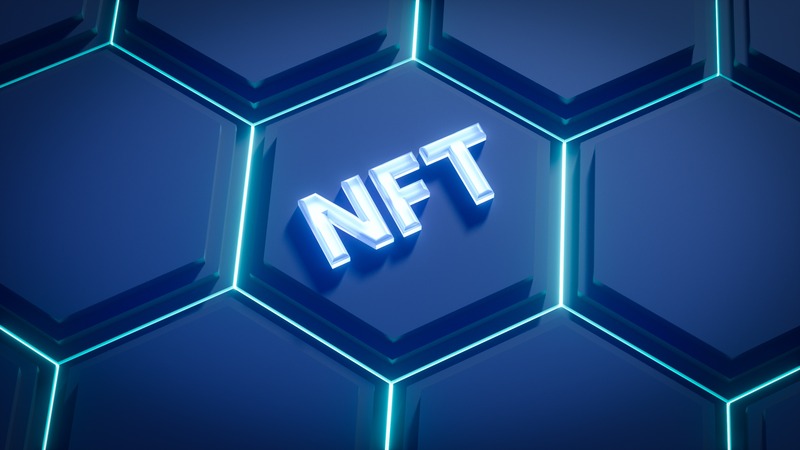
What is the Blockchain?
In the digital age, the term “blockchain” has become increasingly prevalent. But what exactly is it? In this article, we’ll explore the fascinating world of blockchain technology, its inner workings, its applications, and its potential impact on various industries.
Introduction
Understanding Blockchain
How Blockchain Works
Key Components of Blockchain
Security in Blockchain
Use Cases of Blockchain
Advantages of Blockchain
Challenges in Blockchain
Future of Blockchain
Conclusion
FAQ 1: What is a blockchain?
FAQ 2: How is blockchain different from cryptocurrency?
FAQ 3: Is blockchain secure?
FAQ 4: What industries can benefit from blockchain?
FAQ 5: How can I get started with blockchain technology?
Understanding Blockchain
Blockchain is essentially a decentralised, distributed ledger that records transactions across multiple computers. Unlike traditional centralised systems, where a single entity controls the data, blockchain operates on a network of computers (nodes), ensuring transparency, security, and immutability.
Blockchain technology achieves this through a system of consensus, where all participants on the network agree on the validity of transactions before they are recorded. This consensus mechanism ensures that no single entity can manipulate or alter the data within the blockchain.
How Blockchain Works

At its core, a blockchain consists of a chain of blocks, each containing a set of transactions. These blocks are linked together, forming a chronological chain. Once a block is added to the chain, it becomes extremely challenging to alter any information within it.
Each block in the blockchain contains a cryptographic hash of the previous block, creating a secure and unbreakable link between them. This structure ensures that any tampering with one block would require changing the information in all subsequent blocks, making it practically impossible.
Key Components of Blockchain
1. Decentralised
One of the fundamental principles of blockchain is decentralisation. Unlike traditional databases controlled by a single entity, a blockchain operates on a network of nodes. This decentralisation reduces the risk of a single point of failure and eliminates the need for intermediaries in transactions. Every participant on the network has equal authority, enhancing trust and transparency.
2. Cryptography
Strong cryptographic techniques secure data on the blockchain. Each transaction is encrypted and linked to the previous transaction through a complex mathematical process. This ensures that transactions are private, tamper-resistant, and secure.
Blockchain uses public and private keys to provide secure access control. Participants use their private keys to sign transactions, proving ownership, while the public keys allow others to verify the authenticity of these transactions.
Security in Blockchain
Blockchain’s security features are a key reason for its popularity. Every transaction is verified by consensus among nodes, making it nearly impossible for bad actors to manipulate the system. The cryptographic hash of each block ensures that even a minor change in the data would be immediately detected by the network.
Moreover, the decentralisation nature of blockchain makes it resilient to attacks. Unlike centralised systems that can be vulnerable to a single breach, a blockchain network’s data is distributed across numerous nodes, making it highly robust against cyber threats.
Use Cases of Blockchain
Blockchain technology is versatile and finds applications in various industries. Let’s delve into some notable use cases:
Supply Chain Management
Blockchain can revolutionise supply chain management by providing an immutable and transparent ledger of goods’ movement. This technology enables tracking from the source to the end user, reducing fraud and ensuring authenticity.
Healthcare Records
Patient records stored on a blockchain are secure, accessible, and easily transferable between healthcare providers. This enhances patient care, reduces administrative overhead, and maintains the integrity of medical data.
Financial Services
Blockchain is the backbone of cryptocurrencies like Bitcoin and Ethereum, but it also has significant potential in traditional financial services. It can streamline cross-border transactions, reduce settlement times, and enhance security in the world of finance.
Voting Systems
Blockchain can enhance the transparency and security of voting systems. By creating a tamper-proof record of votes, it reduces the risk of election fraud and ensures that every vote is counted.
Intellectual Property and Copyright
Artists, musicians, and content creators can use blockchain to protect their intellectual property and copyrights. Blockchain offers a timestamped and immutable record of creations, making it easier to prove ownership and protect against unauthorised use.
Advantages of Blockchain

Transparency
Blockchain transactions are visible to all network participants, enhancing transparency and trust. Anyone can verify transactions, which is especially crucial in industries where trust is paramount.
Immutability
Once data is recorded on the blockchain, it cannot be altered, providing a reliable record of history. This immutability is a valuable feature for auditing, legal, and historical purposes.
Enhanced Security
Blockchain’s cryptographic techniques and consensus mechanisms make it highly secure. It’s resistant to tampering, fraud, and unauthorised access.
Challenges in Blockchain
While blockchain holds immense potential, it faces challenges such as:
Scalability Issues
As blockchain networks grow, they can face scalability problems, leading to slow transaction processing times. Efforts are ongoing to address this issue through innovations like sharding and layer-2 solutions.
Energy Consumption Concerns
Some blockchain networks, like Bitcoin, require significant energy to maintain. Efforts are being made to create more energy-efficient solutions and explore alternative consensus mechanisms.
Regulatory Hurdles
Governments and regulatory bodies are still adapting to the technology, which can lead to uncertainty and legal challenges. Striking a balance between innovation and regulation is an ongoing challenge.
Future of Blockchain
The future of blockchain is promising, and it’s evolving rapidly. Some trends and developments to watch for include:
DeFi (Decentralised Finance)
The growth of decentralised finance platforms that enable borrowing, lending, and trading of cryptocurrencies without intermediaries.
NFTs (Non-Fungible Tokens)

The rise of non-fungible tokens, which represent ownership of unique digital assets, such as digital art and collectibles.
Increased integration of blockchain technology across various industries, from healthcare to supply chain management, and beyond.
Enhanced Privacy Features
Continued advancements in privacy-focused blockchain solutions, ensuring data protection while maintaining transparency.
Conclusion
In conclusion, blockchain is a transformative technology with the potential to revolutionise how we record and verify transactions. Its security, transparency, and decentralisation are changing the way industries operate. As blockchain technology continues to mature, we can expect it to play an increasingly vital role in shaping our digital future.
FAQs About Blockchain
FAQ 1: What is a blockchain?
A blockchain is a decentralised, distributed ledger that records transactions across multiple computers, ensuring transparency and security. It operates on a network of nodes, eliminating the need for intermediaries.
FAQ 2: How is blockchain different from cryptocurrency?
Blockchain is the underlying technology that powers cryptocurrencies like Bitcoin. While blockchain records transactions, cryptocurrencies are digital assets that can be exchanged on the blockchain network.
FAQ 3: Is blockchain secure?
Yes, blockchain is highly secure due to its cryptographic techniques and consensus mechanisms that prevent tampering and fraud. Transactions on the blockchain are immutable and transparent.
FAQ 4: What industries can benefit from blockchain?
Blockchain has applications in supply chain management, healthcare, finance, voting systems, intellectual property, and more. Its decentralised and secure nature makes it versatile for various industries.
FAQ 5: How can I get started with blockchain technology?
To get started with blockchain, you can explore online courses, join blockchain communities, or consider investing in cryptocurrencies. Learning the basics of how blockchain works is a great first step in understanding this transformative technology.
We hope you found this blog post informative. What is your experience with the blockchain? Let us know in the comments.
Here at Wrightway Digital we are passionate about technology and finding ways to use it to our advantage. Why not check out the innovative BlendSuite API or see how our specialists in website development and marketing can help your business.











